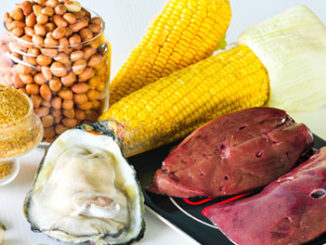Explore the many ways in which different types of food and drink have potential to influence epigenetic marks on DNA and, ultimately, health outcomes. Learn how broccoli may be able to epigenetically reduce cancer risk, how an assortment of herbs could boost health, and even the ways a high fat, low carb diet may be able to boost mental ability. This collection of cutting-edge nutriepigenetic research studies aims to break down complex dietary epigenetic findings and understand its potential application in our daily life.
Check out our comprehensive e-book Epigenetics in Life: What We Eat to learn more about how different foods influence health.
If you were a teenager in 1985, like I was, you probably remember spending an entire day in July plopped in front of the TV watching one of the greatest concerts of all time – Live Aid. The legendary concert broadcast-live around the world that featured an amazing line-up of rock stars was, and still is, the most successful charity event ever held. But, let us not forget its purpose – to raise money and awareness for the famine that [more…]
Zinc is a mineral that’s vital to our health and is involved in several aspects of cellular metabolism. According to the National Institutes of Health, zinc plays a role in a wide range of important processes like healing wounds, synthesizing proteins and DNA, and the division of cells. It’s even required to be able to taste and smell properly. Published in Molecular Nutrition & Food Research, recent evidence conducted at the Oregon State University also suggests that zinc affects the [more…]
Recent research at the University of Missouri School of Medicine sheds some light on the epigenetic changes to proteins that occur as a result of . Their results could help progress treatments for liver diseases linked to alcohol consumption. The lead author of the study and Margaret Proctor Mulligan Professor at the MU School of Medicine, Shivendra Shukla, PhD, says that “we know that chronic alcohol use is damaging to the liver, but binge drinking amplifies that damage.” Chronic liver [more…]
Thanksgiving is a time for people to come together to share what they are thankful for, enjoy each other’s company and, perhaps most importantly, eat. Sharing a large feast is a great way to strengthen the bond between family and friends during Thanksgiving, but you might not know it’s an opportunity to make the best of the nutriepigenetic benefits of your food. Nutriepigenomics looks at the effects different types of food and various nutrients have on the human body via [more…]
A majority of people know that improving your diet will lead to an improvement in your health. But not everyone knows that the consequences of eating poorly can actually persist even after you’ve changed your dietary habits for the better. New research on mice suggests that even following the treatment of atherosclerosis – the build-up of plaque in your arteries – by lowering blood cholesterol and improving diet, the detrimental effects of poor eating continues to affect the functioning of [more…]
Halloween marks the joyous time to carve pumpkins, dress up in frightening garb, and – most importantly – gorge ourselves on sugary candies that seem to be in never-ending supply. It seems harmless enough to snack on some candy corn and taffy and Milk Duds and Twizzlers and… well, you get the idea. Treating yourself to “just a little” candy on Halloween doesn’t seem very harmless, but do you know the epigenetic power that might be lurking in your Halloween [more…]
A child is at an increased risk for developing type 2 diabetes and obesity if his or her mother was undernourished during pregnancy. This risk is caused in part by epigenetic changes thought to persist through generations, but it’s uncertain at which generation these changes stop affecting offspring. Researchers at University of Cambridge give us insight into the temporality of this epigenetic “memory” of nutrition using a mouse model and demonstrate its persistence in mice sperm. In a study published [more…]
According to a new study from University of Pittsburgh School of Medicine, a father’s excessive drinking behavior could set up his son for , even before conception. Results published in PLOS ONE demonstrate that mice show more sensitivity to alcohol’s effects and are less likely to drink it if their fathers were chronically exposed to the substance before mating. This recent animal study adds to the evidence linking heredity and the propensity for alcohol abuse. Previous studies support the inheritance of [more…]
Cardiometabolic disease (CMD) is a term used to define risk factors associated with the development of diabetes and cardiovascular disease. One major characteristic which contributes to these risk factors is obesity. Worldwide, obesity has nearly doubled since 1980 and in 2008, more than 1.4 billion adults 20 and older were overweight (1). Additionally more than 40 million children under the age of five were overweight in 2011 (1). Childhood obesity is associated with a higher chance of obesity, premature death [more…]
Scientists at McGill University, Canada reported that folate deficiency in a father’s diet could increase birth defects in the offspring by altering sperm epigenome. These defects include craniofacial and musculoskeletal malformations. The scientists fed male mice either a folate-deficient or folate-sufficient diet throughout life and then performed genome-wide DNA methylation analysis and subsequent functional analysis to identify differential methylation in sperm of genes implicated in development, and chronic diseases such as cancer, diabetes, autism and schizophrenia. They found that >300 [more…]











